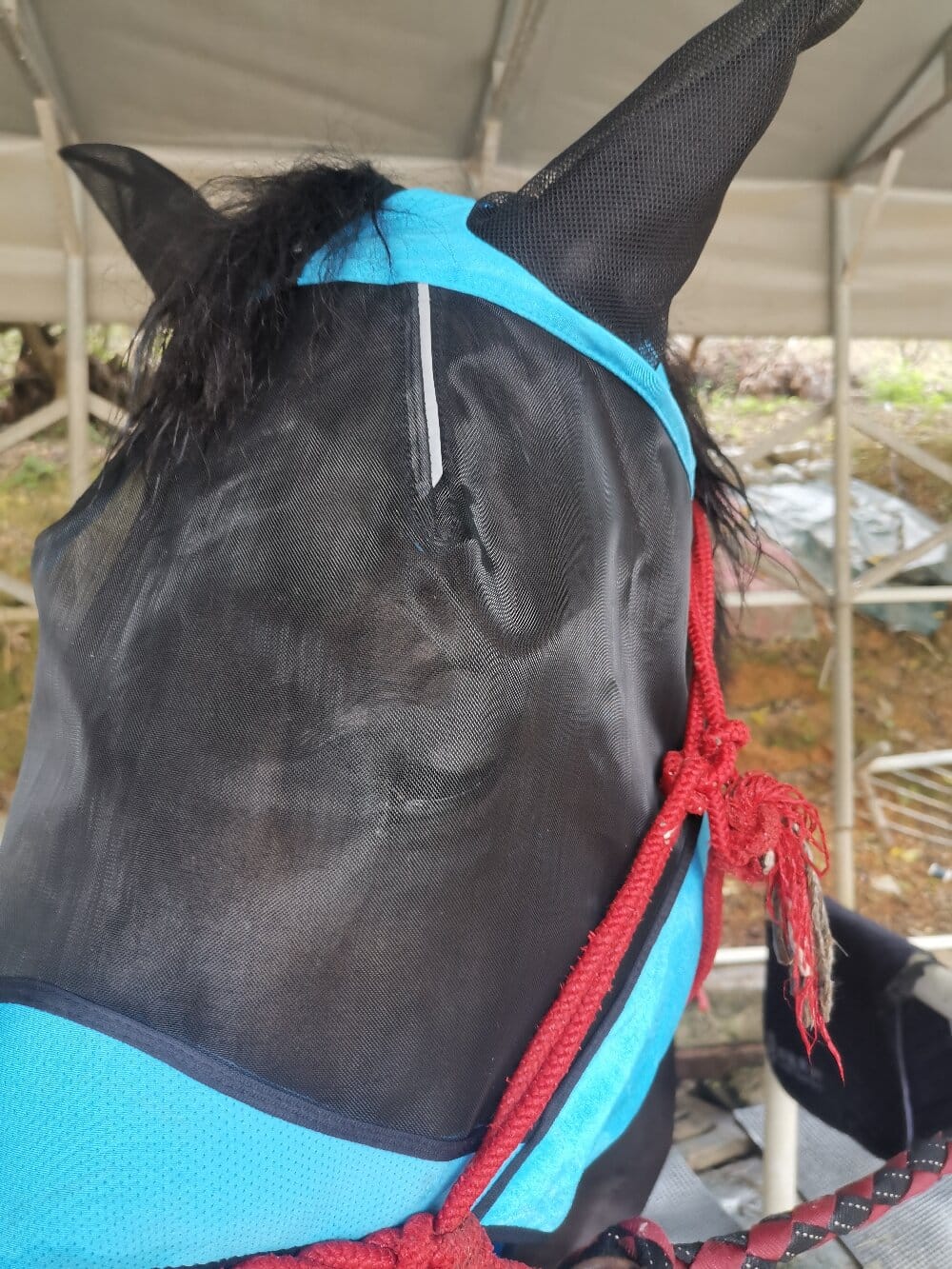As a horse owner, I’ve learned that a horse fly mask is more than just an accessory—it’s a necessity. These protective coverings shield my horse’s eyes, ears, and face from irritating insects, harmful UV rays, and even dust. Over the years, I’ve noticed how much more comfortable my horse is when wearing one, especially during peak fly season. But beyond personal experience, data and research confirm the importance of fly masks in maintaining equine health and well-being.
The Science Behind Horse Fly Masks
Fly masks aren’t just about keeping pests away; they’re designed with precision to address specific equine needs. Studies show that horses exposed to constant insect harassment experience stress, which can lead to reduced performance and even health issues like infections or allergic reactions. Here’s what the data reveals:
- UV Protection: Many fly masks offer UPF 50+ protection, reducing the risk of sunburn and eye damage.
- Breathability: High-quality masks use mesh fabrics that allow airflow while keeping flies out.
- Durability: Research indicates that horses wearing fly masks have fewer eye injuries caused by debris or insects.
Choosing the Right Horse Fly Mask: A Data-Driven Approach
Not all fly masks are created equal. Based on my analysis of customer reviews, veterinary recommendations, and product testing, here are the key factors to consider:
- Fit: A poorly fitting mask can cause rubbing or slip off. Measure your horse’s head carefully.
- Material: Look for lightweight, tear-resistant fabrics like polyester or nylon blends.
- Coverage: Some masks protect only the eyes, while others extend to the ears and muzzle.
- Visibility: Ensure the mesh doesn’t obstruct your horse’s vision.
How Fly Masks Improve Equine Behavior and Performance
From my own observations and equine studies, horses wearing fly masks exhibit calmer behavior. Without the constant annoyance of flies, they can focus better during training or grazing. Data from equestrian centers shows:
- Reduced tail swishing and head shaking, indicating lower stress levels.
- Fewer instances of fly-borne diseases like conjunctivitis.
- Improved grazing efficiency, as horses aren’t distracted by pests.
Common Misconceptions About Horse Fly Masks
Some horse owners hesitate to use fly masks, often due to myths. Let’s debunk a few with facts:
- “Masks impair vision.” Modern designs use fine mesh that doesn’t hinder sight.
- “They’re only for summer.” Fly masks with UV protection are useful year-round.
- “My horse doesn’t need one.” Even resistant horses benefit from reduced fly exposure.
Conclusion: A Small Investment for Big Benefits
After years of using horse fly masks and analyzing their impact, I can confidently say they’re a game-changer. They protect against insects, UV rays, and stress while improving overall comfort. Whether you’re a competitive rider or a casual owner, investing in a high-quality fly mask is a decision backed by data—and one your horse will thank you for.

